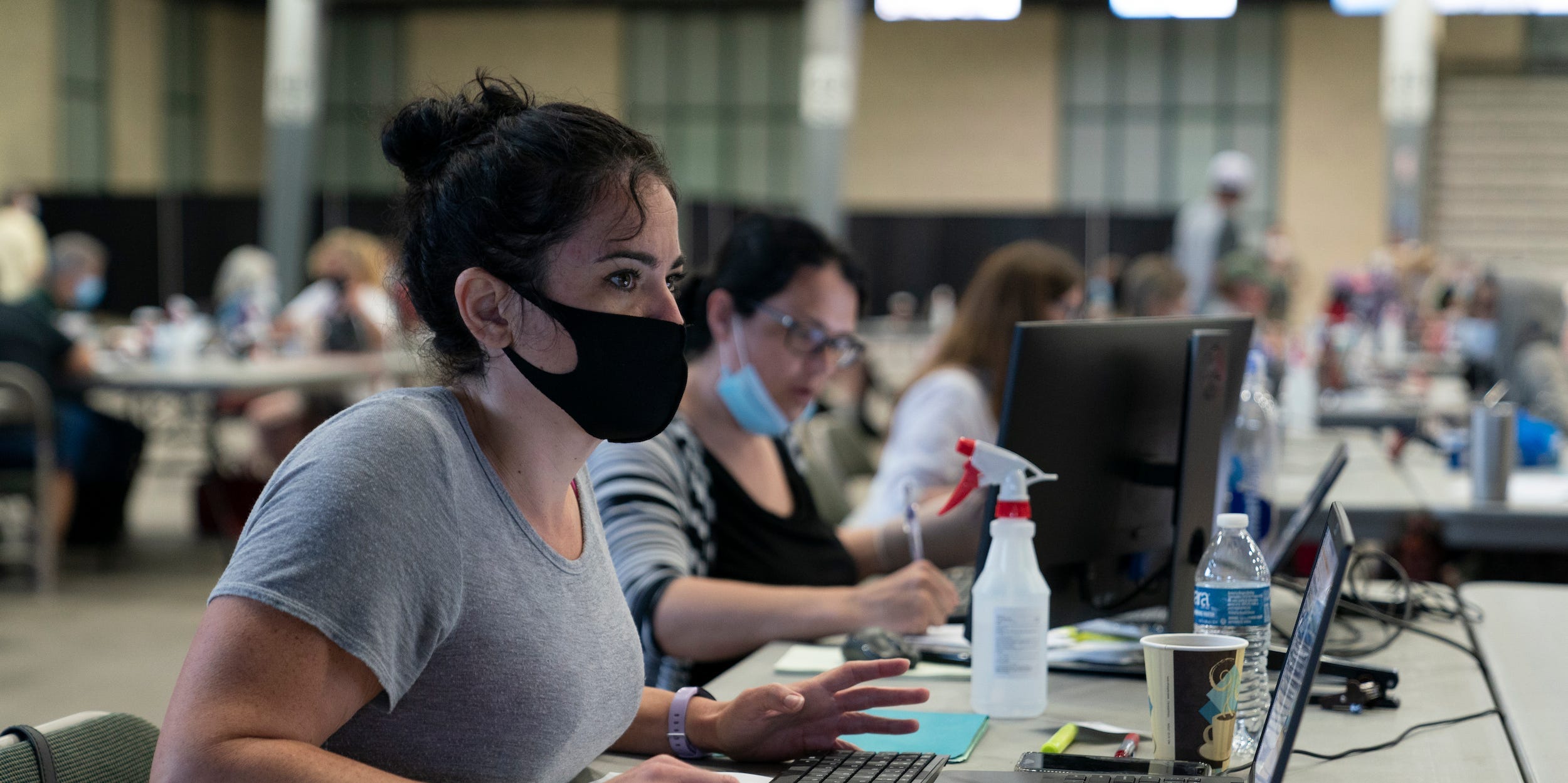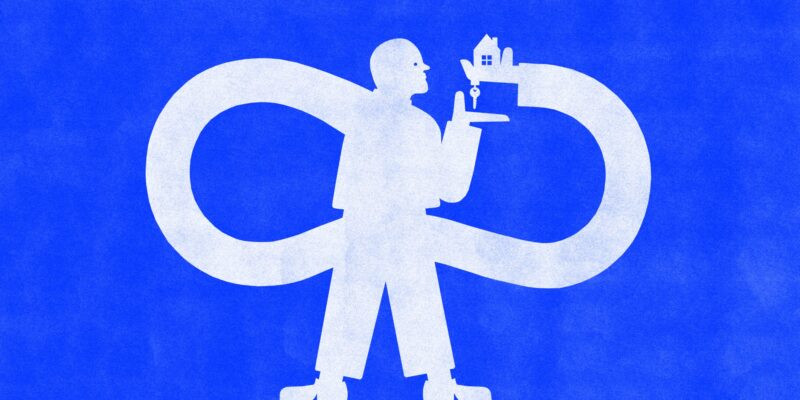
- New US jobless claims for the week that ended Saturday totaled 870,000, the Labor Department said Thursday. The reading came in above the consensus economist estimate of 840,000 and marked an increase from the previous week.
- Continuing claims, the aggregate sum of Americans receiving unemployment benefits, reached 12.6 million for the week that ended September 12. That was higher than economist forecasts but declined from the prior period.
- Visit Business Insider’s homepage for more stories.
The number of Americans filing for unemployment benefits increased last week as the US economic recovery trudged onward without fresh stimulus.
New US weekly jobless claims totaled an unadjusted 870,000 for the week that ended Saturday, the Labor Department reported Thursday. That reading surpassed the median economist estimate of 840,000 compiled by Bloomberg and marked an increase from the prior week.
Continuing claims, which track the aggregate total of Americans receiving unemployment benefits, reached 12.6 million for the week that ended September 12. The reading is a slight decrease from the prior week’s revised number, but exceeded economists’ median estimate of 12.3 million.
In nearly seven months, the roughly 62 million unemployment insurance filings made during the coronavirus pandemic have handily overshadowed the 37 million made during the 18-month Great Recession. Thursday's reading still surpasses the 665,000 filings made during the Great Recession's worst week.
Though the Labor Department's latest report shows claims down markedly from their April peak, the labor market's rate of recovery has slowed. Jobless claims continue to hover at elevated levels, and weekly decreases have steadily shrunk.
The unemployment rate registered at a relatively high 8.4% in August. September nonfarm payrolls data set for release on October 2 will inform economists whether hiring lasted into the fall or weakened.
Little has emerged from Congress to aid the labor-market recovery further. Democrats and Republicans have all but given up on stimulus negotiations, instead shifting their focus to the new Supreme Court vacancy and passage of a federal budget. Many experts pointed to March's CARES Act as a boon for hiring after the virus' hit, but mostly exhausted relief programs leave little assistance for American businesses and the unemployed.











